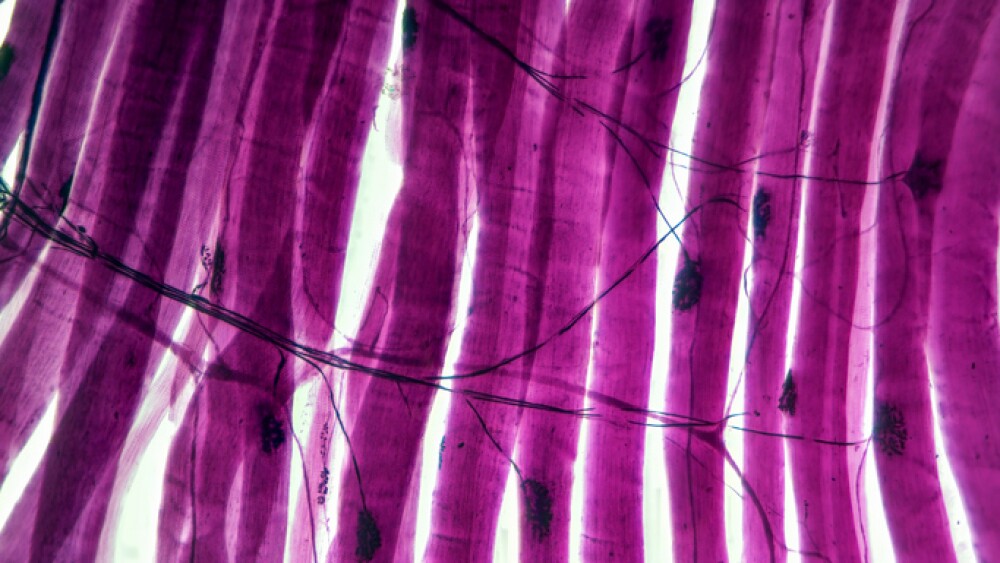Five presentations of clinical and preclinical data from Magenta programs –Two presentations named among best in conference.
“The breadth of presentations from Magenta at this year’s Tandem meeting is a testament to our vision to extend the curative power of bone marrow transplant to more patients and to our recent progress toward achieving this vision. We are especially pleased that two of our presentations were designated among the best in the conference,” said Michael Cooke, Ph.D., chief scientific officer, Magenta. “We are encouraged by the new in vivo data in mice showing enhanced microglial engraftment with MGTA-456. This could hold relevance for our clinical development plans for MGTA-456, particularly in inherited metabolic diseases, where engraftment of cord blood-derived microglia in the brain is important for disease correction.”
Magenta Stem Cell Expansion Program: Abstract #105 -- MGTA-456, Cord Blood CD34+ Cells Expanded with an Aryl Hydrocarbon Receptor Antagonist, Enhances Human Microglia Engraftment in the Brains of NSG Mice – Presentation named one of the best pediatric abstracts of ASBMT
Overview and results, presented by Kevin Goncalves, Ph.D., Magenta Therapeutics:
- Inherited metabolic diseases (IMDs) are characterized by defective enzyme function in patients, which leads to a build-up of storage material in the brain. This build-up causes eventual cell and tissue death, which leads to neurological defects in patients.
- Cord blood transplant is the standard of care in a subset of these diseases -- Hurler’s disease, metachromatic leukodystrophy, adrenoleukodystrophy and globoid cell leukodystrophy -- and the goal of transplant in these diseases is to provide cells that produce the functional enzymes that are deficient in these patients. While transplant with umbilical cord blood can be curative, its efficacy is limited by the low cell numbers in banked cord blood, which can lead to slow engraftment and rejection of the transplanted stem cells.
- MGTA-456 is a single cord blood unit expanded with an aryl hydrocarbon receptor (AHR) antagonist, which has been shown in clinical studies to expand cord blood by a median of 330-fold, resulting in rapid engraftment of the cord blood stem cells and immune recovery after transplant.
- In the study being presented, Magenta scientists compared the ability of MGTA-456 vs. unmanipulated cord blood to engraft in the brain microglia compartment in mice, which is required for disease correction in patients with IMDs.
- In this study, NSG mice transplanted with MGTA-456 showed enhanced engraftment of human cells and an approximately 10-fold increase in engraftment of human microglial cells in the brain compared to mice transplanted with unexpanded cord blood or vehicle-treated cells. Microglial engraftment was confirmed through morphological assessment and immunohistochemistry following transplant.
- Additional experiments and analysis of cell phenotype showed that only CD34+CD90+ stem cells contributed to short- and long-term engraftment.
- These results suggest that MGTA-456 significantly improves hematopoietic engraftment and number of human microglia in the brains of NSG mice compared to unexpanded cord blood.
Additional presentations at ASBMT highlighted data from Magenta’s clinical and preclinical programs. These data were previously presented at the American Society of Hematology (ASH) annual meeting in December 2017.
Oral Presentations:
Magenta Stem Cell Expansion Program: Abstract #4 -- Single Cord Blood Units (CBU) Expanded with an Aryl Hydrocarbon Receptor (AHR) Antagonist, Demonstrate Uniform Engraftment and Rapid Hematopoietic Recovery
Presented by John Wagner, MD, University of Minnesota – Named one of the best oral abstracts of ASBMT
Magenta Targeted Conditioning Program: Abstract #23 -- A Non-Genotoxic Antibody Drug Conjugate Targeting C-Kit for Hematopoietic Stem Cell Transplant Conditioning
Updated results presented by Tony Boitano, Ph.D., Magenta Therapeutics:
- Magenta’s anti-CD117 (C-Kit) antibody drug conjugate (ADC) was highly potent in in vitro killing assays – in both primary CD34+ cells and an AML cell line.
- The anti-CD117 ADC efficiently depleted human CD34+ cells in the bone morrow of humanized NSG mice.
- Treatment with the anti-CD117 ADC showed anti-leukemia effect, significantly improving the survival in an animal model of human leukemia.
Poster Presentations:
Magenta Gene-Modified Stem Cell Expansion Program: Abstract #628 -- Aryl Hydrocarbon Receptor Antagonists Expand Adult Hematopoietic Stem Cells from Mobilized Peripheral Blood and Bone Marrow and Increase the Dose of CRISPR/Cas9 Gene-Edited NSG-Repopulating Cells
Updated results presented by Megan Hoban, Ph.D., Magenta Therapeutics:
- Expansion of mobilized peripheral blood and bone marrow CD34+ gene modified cells with Magenta’s novel AHR antagonist allows for increased engraftment rates while also maintaining high editing and transduction efficiencies.
Magenta Stem Cell Mobilization Program: Abstract #630 --The Combination of Groβt and AMD3100 Leads to Rapid and Robust Mobilization of Hematopoietic Stem Cells in Nonhuman Primates
Presented by Patrick Falahee, Ph.D., Magenta Therapeutics
Magenta Stem Cell Expansion Program: Abstract #632 -- Phenotype Does Not Always Equal Function: HDAC Inhibitors and UM171, but Not SR1, Lead to Rapid Upregulation of CD90 on Non-Engrafting CD34+CD90-Negative Human Cells
Presented by Kevin Goncalves, Ph.D., Magenta Therapeutics
About Bone Marrow Transplant
Healthy bone marrow stem cells and the blood cells they create are crucial for survival, but certain diseases can affect the bone marrow, interfering with its ability to function properly. A bone marrow transplant is a process to replace unhealthy bone marrow with healthy bone marrow stem cells. Bone marrow transplant can save the lives of patients with blood cancers and genetic diseases and is a potential cure for patients with severe refractory autoimmune diseases. Currently bone marrow transplant is still associated with risk, toxic side effect, and complexity for patients that could benefit from the procedure. Magenta is working to address these challenges through its integrated portfolio of therapeutics.
About Magenta Therapeutics
Magenta Therapeutics is a biotechnology company developing therapeutics to revolutionize bone marrow transplant for patients with autoimmune diseases, blood cancers and genetic diseases. By creating a platform focused on critical areas of unmet need, Magenta Therapeutics is pioneering an integrated approach to extend the curative power of bone marrow transplant to more patients. Founded by internationally recognized leaders in bone marrow transplant medicine, Magenta Therapeutics was launched in 2016 by Third Rock Ventures and Atlas Venture and is headquartered in Cambridge, Mass. For more information, please visit www.magentatx.com.
View source version on businesswire.com: http://www.businesswire.com/news/home/20180226005469/en/
Contacts
Magenta Therapeutics:
Manisha Pai, 857-242-1155
Vice President, Communications & Investor Relations
mpai@magentatx.com
Source: Magenta Therapeutics





